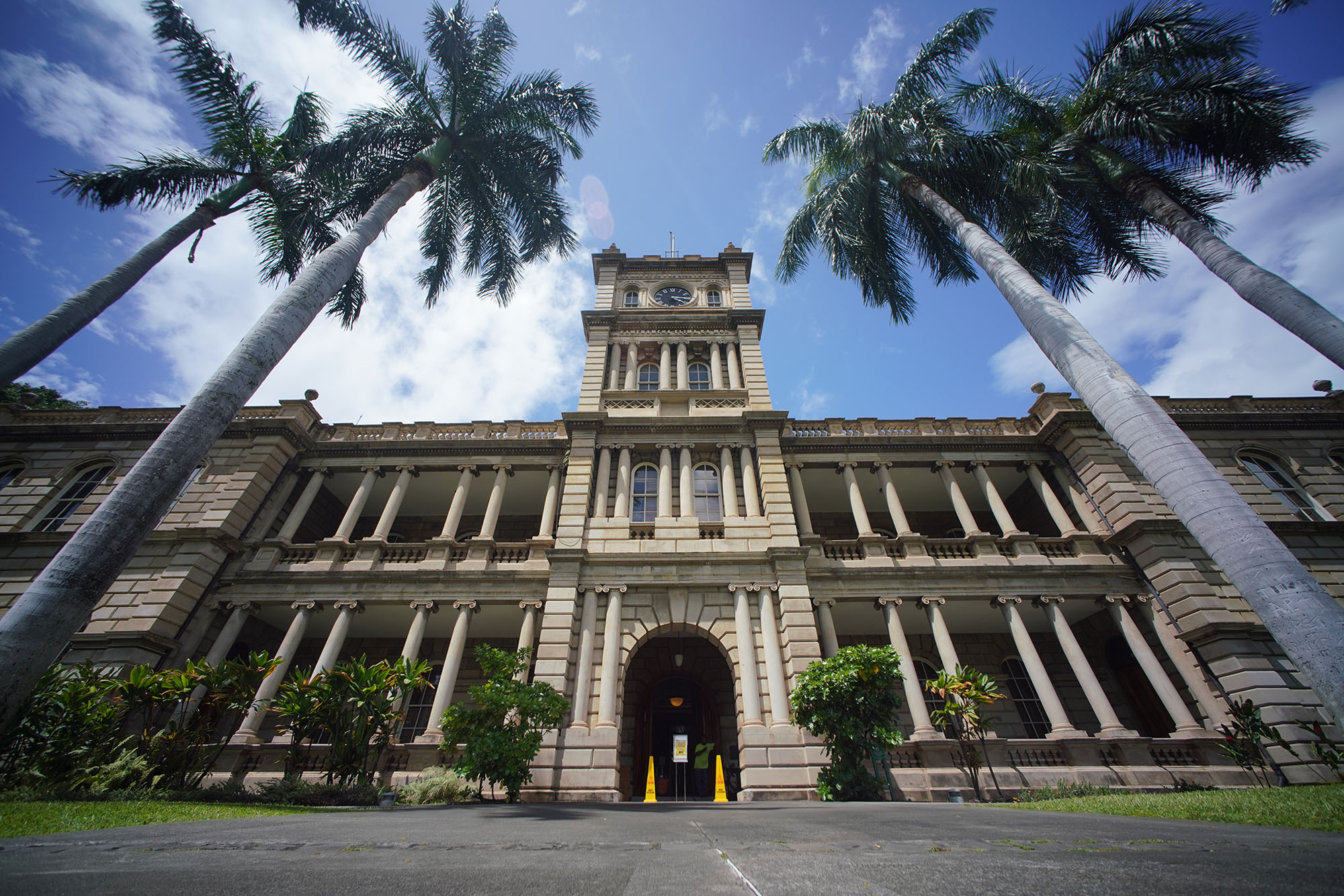Ben Lowenthal: Hawaii's Top Court Says A Fetus Is Not A Person. Alabama Could Not Disagree More
The Hawaii Supreme Court ruled that a fetus is not a person and cannot be a crime victim in 2005, a decision that carries extra weight in a post-Roe world.
April 5, 2024 · 6 min read

About the Author
The Hawaii Supreme Court ruled that a fetus is not a person and cannot be a crime victim in 2005, a decision that carries extra weight in a post-Roe world.
In 2001, a woman from Kaneohe had a baby boy. Two days later, he died. Medical examiners determined the boy had been exposed to methamphetamine in utero.
They questioned the mother, who started crying and admitted to smoking crystal meth days before giving birth. She struggled with addiction and had been in and out of treatment and recovery. The boy, who she had breastfeed shortly before he died, was her fifth child.
This was a time when the lieutenant governor, Duke Aiona, hosted an exposition on the horrors of meth in Hawaii. Law enforcement regularly told the public that the islands were inundated with meth users.
In 2003, Honolulu prosecutors charged her with manslaughter for recklessly killing her baby, a crime that exposed her to 20 years in prison. It was a legal first in Hawaii and it sparked a raucous debate.
Newspapers ran headlines like “Ice baby’s mom pleads not guilty.” Even though her lawyer told the press that the traumatic events had made her more committed than ever to staying clean and sober, the press still labeled her a “meth mom.”
There was a sickening precedent for things like on the mainland.
In the 1980s and ’90s, as the War on Drugs raged against people of color, babies exposed to cocaine in utero were called “crack babies” — a racist designation. Cocaine and crack are pharmacologically identical. Calling children with prenatal exposure to cocaine a “crack baby” invoked images of an irresponsible black mother. A “cocaine baby” doesn’t.
These children, so it went, were doomed from the start. They were so damaged by their mother’s drug use that the former president of Boston University claimed they “won’t ever achieve the intellectual development to have consciousness of God.”

The hysteria over prenatal drug use by women of color turned into fears of a new generation of Black and brown criminals. A paper for law enforcement in 1996, asked “What Impact Will 1980s Crack Babies Have on Police Services by the Year 2005?” It projected we should expect expanding prison populations, more “young sociopathic adults,” and young people “who are apathetic, uneducated, and dependent.”
Turns out, it was a myth. Studies show that while prenatal exposure had some effects, there was no considerable difference in language development or intellectual ability.
Of course, that wasn’t part of the discussion for the Kaneohe mother. Honolulu’s prosecutor at the time, Peter Carlisle, took a hard stance. He told the press that “if a mother chooses between drugs and caring for their child properly, and they choose drugs and that choice leads to the death of a child, then that is a case neither society nor this office can turn a blind eye to.”
Her defense attorney, a public defender, pushed back and called the case “a perverse application of the law.” While the mother struggled with addiction, she had made progress in maintaining sobriety. Turning the loss of her son into a criminal prosecution was “counterproductive and mean-spirited.”
The undeterred Carlisle mused that while this was a first, it may not be the last. Mothers with children damaged by exposure to drug use in the womb should be charged with assault.

After the trial court refused to dismiss the case, the mother pleaded guilty but was allowed to appeal to the Hawaii Supreme Court. For the next year, the case was tried in the court of public opinion.
Letters and opinion pieces argued that the prosecution against the mother was a “witch hunt” and deterred other women from getting help with their addiction. On the other hand, conservatives wrote that the charges should stick and attacked the woman for being a bad mother and played up similar stereotypes around “crack babies” of the ’80s.
In 2005 — four years after the child died — the Hawaii Supreme Court issued its opinion. The issue turned on what constituted a person under the penal code. When it comes to crimes against a person — like assault or murder — a person is a “human being who has been born and is alive.” The unborn fetus is not a “person.”
Clarification: This story has been updated with additional context about the case.
Although the woman had admitted to breastfeeding her child multiple times when methamphetamine would have still been in her system, the court focused on her behavior during pregnancy.
After surveying decisions across the country, the court ruled that a mother’s conduct is subject to prosecution only after the child is born. Prenatal conduct is not covered by homicide or assault statutes. The mother’s conviction was reversed.
These days, the case seems less about the drug wars and more about women’s autonomy over their bodies. The constitutional right to terminate a pregnancy in Roe v. Wade has been snuffed out. In post-Roe America, the states can expand on what constitutes a person under the law. The theory of fetal personhood — the notion that unborn fetuses are persons with legal rights impacting the mother — has ramped up.
The Alabama Supreme Court this year went a step further by ruling that fertilized embryos, cryogenically frozen and stored in a hospital, were children and their parents could sue the hospital and fertility clinic.

Here’s how the court recited the facts of the case:
“The plaintiffs allege that the Center was obligated to keep the cryogenic nursery secured and monitored at all times. But, in December 2020, a patient at the Hospital managed to wander into the Center’s fertility clinic through an unsecured doorway. The patient then entered the cryogenic nursery and removed several embryos. The subzero temperatures at which the embryos had been stored freeze-burned the patient’s hand, causing the patient to drop the embryos on the floor, killing them.”
That’s how the plaintiffs — sperm and egg donors who contracted with the clinic to keep the embryos — sued for wrongful death of their, as the court called them, “extrauterine children.”
The differences couldn’t be starker. While Alabama considers embryos children, Hawaii cannot prosecute mothers for making prenatal decisions that could hurt or kill an unborn child. Could Hawaii have a change of heart and move toward fetal personhood or even the extreme extrauterine personhood?
The lawyers involved in the Kaneohe mother’s case have moved on. The trial prosecutor became a judge and retired. Peter Carlisle isn’t in the public eye anymore. The mother’s defense attorney, Todd Eddins, is now a Hawaii Supreme Court justice. So could the court redefine personhood? Sure, but probably not.
 Sign up for our FREE morning newsletter and face each day more informed.
Sign up for our FREE morning newsletter and face each day more informed.
Read this next:
Jonathan Okamura: Hawaii Doesn’t Have Political Leaders Like Patsy Mink Anymore
By Jonathan Y. Okamura · April 7, 2024 · 6 min read
Local reporting when you need it most
Support timely, accurate, independent journalism.
Honolulu Civil Beat is a nonprofit organization, and your donation helps us produce local reporting that serves all of Hawaii.
ContributeAbout the Author
Ben Lowenthal grew up on Maui. He earned his undergraduate degree studying journalism at San Francisco State University and his law degree at the University of Kansas. He is a deputy public defender practicing criminal defense in trial and appellate courts. He also runs “Hawaii Legal News,” a blog covering Hawaii appellate courts. The author's opinions are his own and don't necessarily reflect those of Civil Beat. You can reach him at ben.lowenthal@civilbeat.org.
Latest Comments (0)
This opinion piece is puzzling. "Crack Babies" come in many colors. In Butte County, California, they were mostly white. I know this not just as a statistic, but because their presence, along with a large and growing non-English (Hmong & Latino) speaking children group forced us out of the public schools. The teachers were understaffed and overwhelmed with insufficient aides for either language or disciplinary or special needs support. Crack abuse followed the impoverished, "hopeless" demographic even in rural areas.
Dada · 4 days ago
"The lawyers involved in the Kaneohe motherâs case have moved on. The trial prosecutor became a judge and retired. Peter Carlisle isnât in the public eye anymore. The motherâs defense attorney, Todd Eddins, is now a Hawaii Supreme Court justice. So could the court redefine personhood?"The US Justice System is no longer blind and unbiased, it functions in a real world of judicial bias that is embodied by humans with political and personal biases.The next time, fetal personhood or extrauterine personhood issue or any issue such as tainted elections, comes before the Justice system in the future, it will all depend on which person is sitting on the judge's bench.
Joseppi · 4 days ago
And that woman is now decades clean, has advanced degrees and constantly uses her experience to help others. What a travesty it would have been if she had gone to jail for having the illness of addiction
annsybl · 5 days ago
About IDEAS
IDEAS is the place you'll find essays, analysis and opinion on every aspect of life and public affairs in Hawaii. We want to showcase smart ideas about the future of Hawaii, from the state's sharpest thinkers, to stretch our collective thinking about a problem or an issue. Email news@civilbeat.org to submit an idea.

